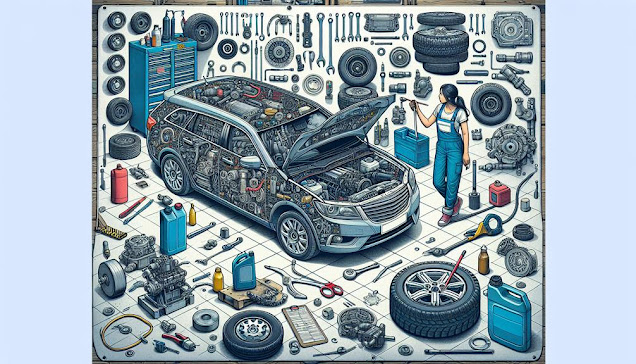Key Auto Mechanic Advice for Keeping Your Toyota Engine in Top Condition
Maintaining the longevity and performance of your Toyota engine requires more than just regular oil changes and occasional tune-ups. As a motor vehicle owner, understanding the intricate details of your engine's operation and the nuances of preventative maintenance can go a long way in reducing unexpected breakdowns and costly repairs.
This discussion aims to provide essential auto mechanic tips that are specifically tailored to Toyota engines, offering an informed approach to regular maintenance checks and advanced engine care. The knowledge shared here not only seeks to deepen your understanding of your vehicle's engine but also to equip you with practical skills to keep your Toyota running smoothly for years to come.
Regular Maintenance Checks for Toyota Engines
To ensure the longevity and optimal performance of your Toyota engine, it is essential to perform regular maintenance checks as recommended by the manufacturer. These checks involve assessing the engine oil levels and quality, evaluating the cooling system, inspecting the air filters, and ensuring the proper functioning of the timing belt.
Importance of Regular Oil Changes
Regularly checking the engine oil is particularly crucial as it lubricates, cools, cleans, and seals the engine. Dirty or low oil levels can cause significant engine wear and overheating. Changing the oil at recommended intervals ensures that your engine remains well-lubricated and operates efficiently.
Cooling System Maintenance
The cooling system, which prevents overheating, requires regular inspection and servicing. Ensuring that the coolant levels are appropriate and the coolant itself is clean can prevent the engine from running too hot, which can lead to severe damage.
Air Filter Inspection
Air filters trap dust and particles, protecting the engine and improving fuel efficiency. Over time, these filters can become clogged, reducing airflow and engine performance. Replacing the air filter as needed helps maintain optimal engine efficiency.
Timing Belt Checks
A malfunctioning timing belt can lead to severe engine damage. Regular inspection and timely replacement of the timing belt can prevent catastrophic failures and extend the life of your engine.
Advanced Tips for Toyota Engine Care
Beyond the basic maintenance routines, implementing advanced engine care techniques can notably enhance the performance and durability of your Toyota engine. Here are four advanced tips:
Periodic Compression Tests
Conducting periodic compression tests helps to assess the condition of your engine's valves, valve seats, and piston rings. This test can reveal any leakage and help diagnose potential issues before they become serious.
Fuel System Cleaning
For optimal performance, it is important to clean the fuel injectors, intake valves, and combustion chambers. Over time, these components can become clogged with deposits, reducing fuel efficiency and engine performance. Regular cleaning ensures that your fuel system operates smoothly.
Engine Decarbonization
Engine decarbonization removes carbon deposits within the engine, enhancing its efficiency and reducing emissions. This process can improve engine performance, increase fuel economy, and extend the life of your vehicle.
Regular Oil Analysis
Regular oil analysis not only measures the oil's properties but also detects traces of metal, which could signal wear and tear. By analyzing the oil, you can gain insights into the health of your engine and address any potential issues early.



Comments
Post a Comment